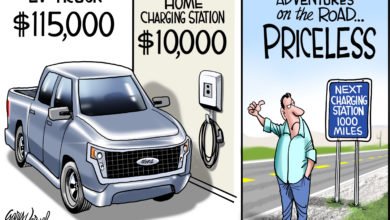The Problem with “Paycheck-to-Paycheck” Metrics
If you follow financial news, a headline you’ll often see is that a large number of people are living “paycheck-to-paycheck.” CNBC recently reported 62% of Americans find themselves in this situation. An even more disturbing survey out of PayRollOrg reports the number to be as high as 78%.
This sounds like a gloomy statistic. How could it be that per-person income is at an all-time high, but a single paycheck is make or break for so many households? To be blunt, it simply isn’t the case. The numbers which drive these headlines are extraordinarily fraught, and some simple examination shows why.
Talk is Cheap
One issue with these surveys is they often rely on self-reporting with plenty of room for vagueness. Returning to the PayRollOrg statistic, consider the wording of the survey. According to PR Newswire, “the annual survey asked respondents how difficult it would be to meet their financial obligations if their paychecks were delayed for a week… 78 percent, said they would find it somewhat or very difficult to meet their financial obligations.”
Notice the subjectivity of such measures. What does it mean for it to be “difficult” to meet financial obligations?
For example, if your paycheck is late a week, is it difficult to meet financial obligations because you don’t have the money, or because you don’t want to pull the money from elsewhere?
This brings us to a second difficulty—the amount of money a person spends is dependent on what they expect their income to be. Notice what this implies. Let’s say your income is $30,000 per year and you’re comfortable with only having $1,000 of emergency savings. You can happily spend the other $29,000.
Now imagine your income increases to $100,000, but your preference for emergency savings doesn’t change. That still means with your higher income you are now only saving $1,000 and you spend the other $99,000. Notice, regardless of higher income, the person appears to be equally dependent on the next paycheck. If you only have $1,000 in savings in both cases, the next paycheck is equally important for meeting obligations.
In this case, it will always appear that people are living paycheck to paycheck because, for whatever reason, they tend to be comfortable with this savings level. In reality, though, the person could change their behavior and save up to $70,000 of the new income.
Finally, there is a third problem with measures like this. Many of our financial “obligations” are actually wealth-building tools. For example, many of us would consider a mortgage to be a monthly obligation, but it’s important to note that a mortgage payment is a form of savings.
When you put $1,500 toward your mortgage, a portion of that builds equity in your house. This equity could be leveraged to help you in times of financial crisis. When surveys ask people whether they have large savings to cover expenses, it seems unlikely to me that the surveyors ask about the huge pile of wealth people invest in their houses.
Similarly, people often contribute to retirement accounts out of their paychecks. According to Fidelity, the average 401K balance has risen over the last decade by 39%, keeping ahead of inflation. This means, at least in absolute terms, people are putting more wealth into retirement. Certain demographic groups decreased average contributions during the course of the pandemic, but many of these numbers seem to be rebounding.
Again, we wouldn’t expect to see this sort of pattern in a nation living on the edge of a knife when it comes to income and debt. Instead, we’d expect to see people reduce their retirement prospects for security today.
The simple fact is that people don’t tend to accumulate large hoards of cash in a checking account. When an individual’s income increases, they direct it somewhere—new spending, larger houses, or retirement accounts. The fact that people’s plans rely on the next paycheck isn’t evidence of some deep-seated instability. It’s reflective of the fact that most people believe they have stable employment.
As professor Chris Freiman points out on Twitter, even the rich seem to be living paycheck-to-paycheck. That should tell us something.
This is a good reason why someone’s actual income is a better measure of their economic standing than whether they’re living paycheck to paycheck—you can be rich but live paycheck to paycheck at least in part due to your consumption decisions https://t.co/XOYz3xBgl8 pic.twitter.com/W8UeWD9ENq
— Chris Freiman (@cafreiman) October 31, 2023
Content syndicated from Fee.org (FEE) under Creative Commons license.
Agree/Disagree with the author(s)? Let them know in the comments below and be heard by 10’s of thousands of CDN readers each day!




